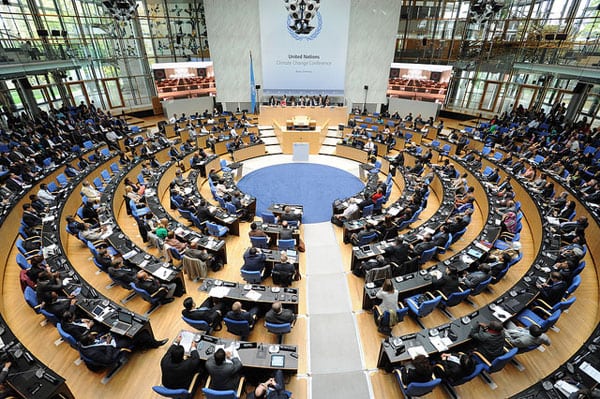
September 10, 2018; New York Times (1 and 2)
Few were surprised when the EPA announced its plan on September 11, 2018, to roll back a major 2016 EPA rule that restricts emissions of methane, a major greenhouse gas. The day before, UN Secretary-General Antonio Guterres warned (video here, transcript here), “If we do not change course by 2020, we risk missing the point where we can avoid runaway climate change, with disastrous consequences for people and all the natural systems that sustain us.”
“Climate change is the defining issue of our time, and we are at a defining moment,” Guterres said. “Scientists have been telling us for decades. Over and over again. Far too many leaders have refused to listen.”
New research made possible by new technology supports the UN’s alarm. Hurricane Florence is rapidly building in strength, jumping in runaway fashion from a Category 1 to a Category 4 hurricane with 140 mph winds. This new report predicts that as the climate continues to warm, storms could quickly grow beyond the limits of Category 5.
The EPA plan is at least the third major step the Trump administration is making this year to change the way air pollutants are regulated. This new proposal would save the oil and gas industry $484 million over six years. As the nation remembers 9/11, the images still seem unimaginable; the same might be said in time of what climate change will bring, let alone the financial costs.
The next round of UN climate negotiations is scheduled for December in Katowice, Poland. The UN Emissions Gap Report 2017 finds that national pledges only bring one-third of the reduction in emissions required by 2030 to meet climate targets.
Sign up for our free newsletters
Subscribe to NPQ's newsletters to have our top stories delivered directly to your inbox.
By signing up, you agree to our privacy policy and terms of use, and to receive messages from NPQ and our partners.
Like California, the United Nations is looking to corporate and local government leaders to increase pressure on national governments to adhere to the Paris Agreement aims to avert the most catastrophic impacts of climate change. Meanwhile, the Interior Department is preparing its final draft rule (proposed in February) to repeal restrictions on the release of methane from drilling operations.
Industry groups praised the expected changes. “It’s a neat pair” of proposals on methane, said Kathleen Sgamma, president of the Western Energy Alliance, an association of independent oil and gas companies that is based in Denver. The Obama-era EPA methane rule, she said, “was the definition of red tape. It was a record-keeping nightmare that was technically impossible to execute in the field.”
Ms. Sgamma praised the Trump administration for turning the oil companies’ requests into policy, noting that the Obama administration frequently turned proposals from environmental groups into policy. ”It all depends on who you trust,” she said. “That administration trusted environmentalists. This one trusts industry.”
2018 will likely be the fourth-warmest year on record for the Earth’s surface. This study shows that one metric ton of methane emissions has the same capacity to warm the planet as 32 metric tons of carbon. Federal courts have rejected a number of attempts by the Trump administration to delay or suspend the Obama-era methane regulations. We now see that Scott Pruitt’s successor, Andrew Wheeler, is equally content to do the bidding of the fossil fuel industries.
Secretary-General Guterres is trying to make those who believe in the supremacy of “the market” concede that business must ultimately bend to the goals, values, and the eventual survival of society. It is the ideological contest of our time. If catastrophic storms and melting ice caps do not change policies, there is little chance more UN summits and international negotiations will, at least in time. But there is time to elect new leaders who do not deny climate change.—Jim Schaffer











